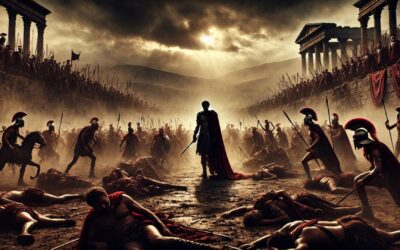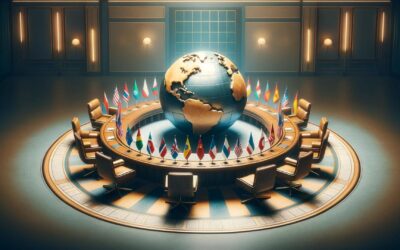In 1989, a pivotal moment in world history unfolded – the Fall of the Berlin Wall. This wasn’t just the demolition of a physical barrier; it was the crumbling of an ideological divide that had split not only Germany but the entire world. The Fall of the Berlin Wall is not just a historical event; it’s a powerful symbol of unity, freedom, and the triumph of the human spirit over division.
The Wall that Divided the World
For nearly 30 years, the Berlin Wall stood as the most potent symbol of the Cold War, a physical manifestation of the “Iron Curtain” between the capitalist West and the communist East. Constructed in 1961, it was a response to the mass exodus of East Germans to the West. Life on either side of the wall was starkly different, and families were torn apart, unable to see each other.
The Winds of Change
By the late 1980s, the political landscape began to shift. The Soviet Union, under Mikhail Gorbachev, introduced policies of glasnost (openness) and perestroika (restructuring), signaling a move towards a more open and liberal governance. These policies, coupled with growing unrest in Eastern Europe, set the stage for the events of 1989.
The Night the Wall Fell
On November 9, 1989, an announcement by East German officials mistakenly implied immediate free passage through the border. Crowds gathered, and overwhelmed border guards eventually allowed people to cross. This spontaneous event turned into a joyous celebration as people from both sides climbed the wall, dismantling it with hammers and chisels.
The Aftermath and Reunification
The fall of the wall was the beginning of the end for East Germany. Within a year, Germany was officially reunited. The Cold War was drawing to a close, and the Soviet Union would soon dissolve, marking the end of an era.
Real-Life Impact and Lessons
The Fall of the Berlin Wall teaches valuable lessons about the power of collective action, the human yearning for freedom, and the possibility of peaceful change. It’s a testament to the fact that no divide is too great to overcome.
Applying This History to Today
You live in a world where barriers, both physical and ideological, still exist. Reflect on the lessons of the Berlin Wall. Where in your life do you see divisions that need bridging? How can you contribute to a more united and understanding society? Let the story of the Berlin Wall inspire you to break down walls, build bridges, and foster unity in your community and beyond. Remember, change often starts with a single step, a single voice. Be that change.
Why Should You Care?
Learning about the Fall of the Berlin Wall is crucial because it represents more than a historical event; it symbolizes the triumph of unity over division, freedom over restriction, and change over stagnation. It’s a powerful reminder of how collective action and the desire for freedom can reshape the world. Understanding this event provides insight into the political and social dynamics that continue to influence current global affairs.
Key Takeaways
- The Berlin Wall was a symbol of the Cold War division between the capitalist West and communist East.
- Its fall in 1989 marked the beginning of German reunification and the end of the Cold War.
- The event symbolized the power of collective action and the human desire for freedom and unity.
- It led to significant political changes, including the end of the Soviet Union.
- The fall of the Wall teaches valuable lessons about overcoming divisions and fostering unity.
Keywords:
- Berlin Wall: A concrete barrier that physically and ideologically divided Berlin from 1961 to 1989.
- Cold War: A period of geopolitical tension between the Soviet Union and the United States and their respective allies after World War II.
- German Reunification: The process in 1990 in which the former East Germany (GDR) joined the Federal Republic of Germany (FRG) and Berlin was united into a single city.
- Glasnost: A Soviet policy of openness and transparency in government institutions and activities.
- PerestroikA Soviet policy of political and economic reforms.
- Mikhail Gorbachev: The last leader of the Soviet Union, known for his policies of glasnost and perestroika.
- Ideological Divide: A system of beliefs or philosophy that creates a separation between groups.
- Spontaneous Event: An occurrence that happens without planning, prompted by the circumstances.
- Collective Action: Actions taken together by a group of people whose goal is to enhance their status and achieve a common objective.
- Political Landscape: The political environment, including the various political entities and their relationships.
Frequently Asked Questions
What were the immediate effects on Berlin after the Wall fell?
The immediate effects included a surge of East Germans into West Berlin, newfound freedom of movement, and a rush of economic and social changes as East Germany transitioned from communism to a more capitalist society.
How did the fall of the Berlin Wall affect global politics?
It signaled the decline of Soviet influence in Eastern Europe, contributed to the end of the Cold War, and inspired democratic movements worldwide.
Myth Buster
Myth: The fall of the Berlin Wall was a planned and orderly event.
Reality: The fall was largely unplanned and spontaneous, triggered by a mistaken announcement and the subsequent actions of the citizens.
Let’s Talk
- How do you think the world has changed since the fall of the Berlin Wall?
- What modern examples of ‘walls’ exist in today’s society, either physical or metaphorical?
- How can the lessons from the fall of the Berlin Wall be applied to current global challenges?
Feel free to share your thoughts in the comments below. Your perspectives on how historical events like the fall of the Berlin Wall relate to contemporary issues are invaluable.












0 Comments